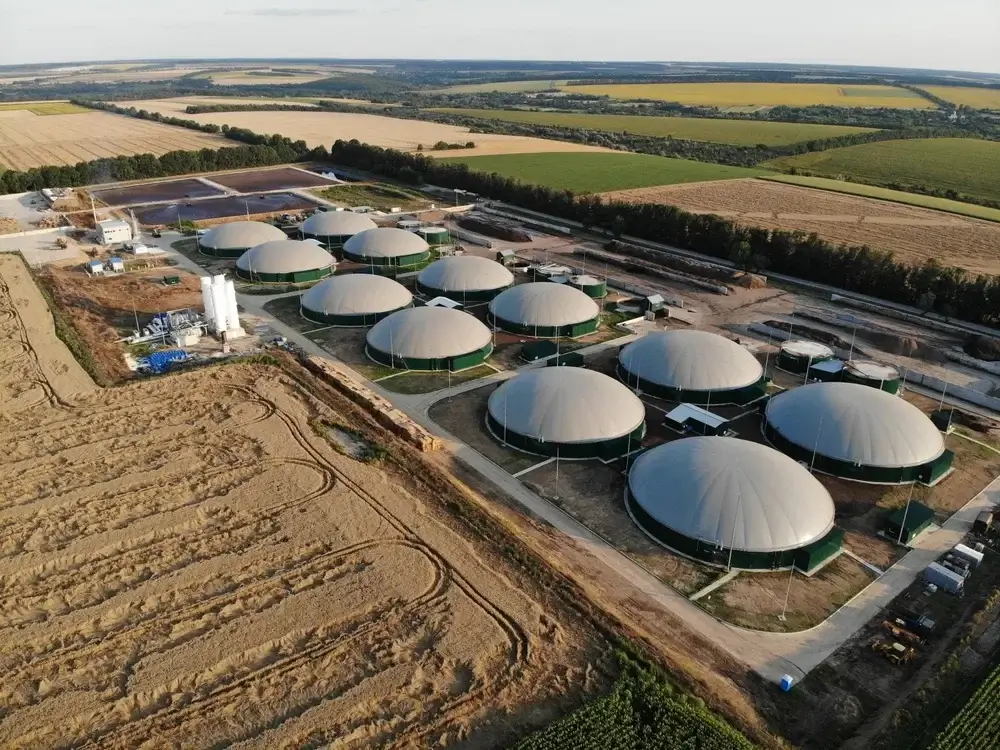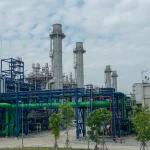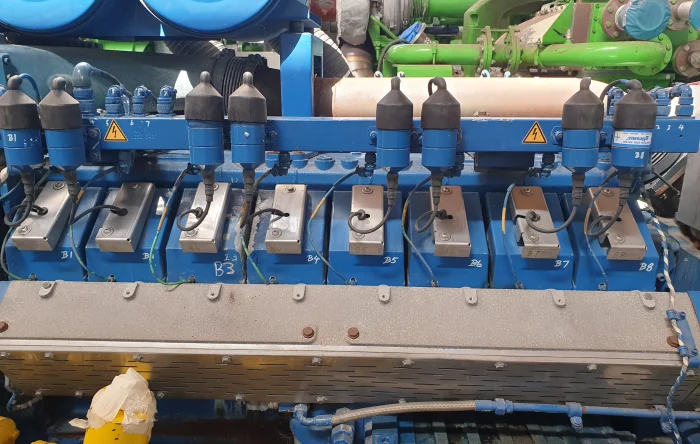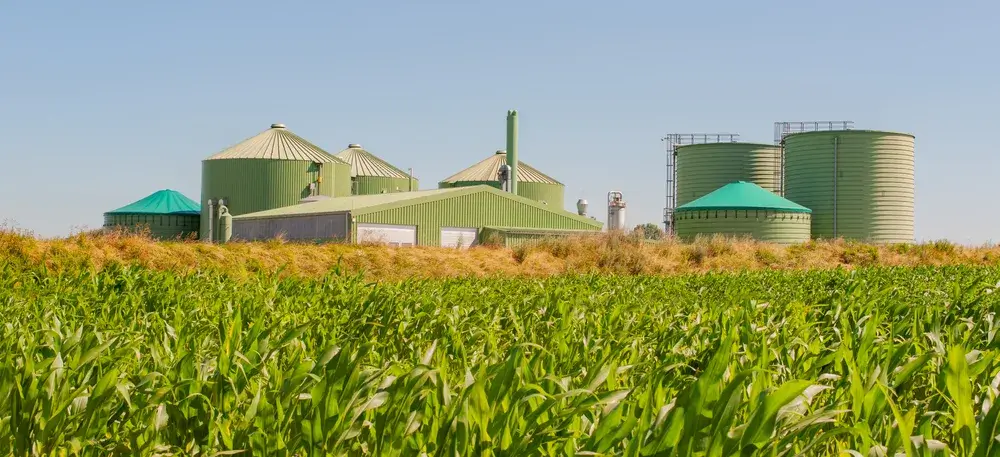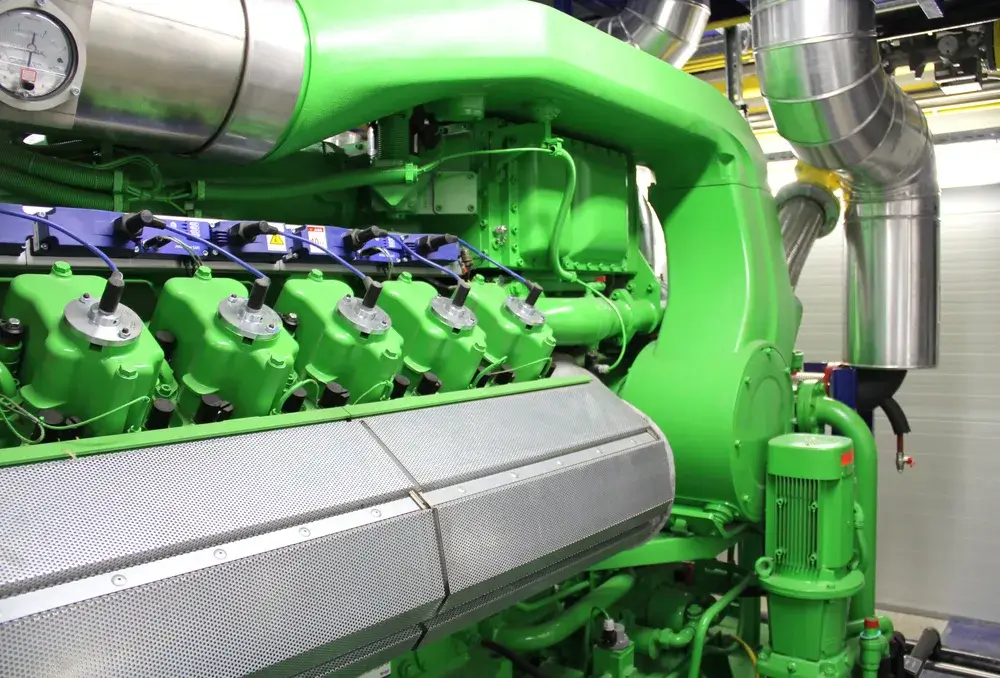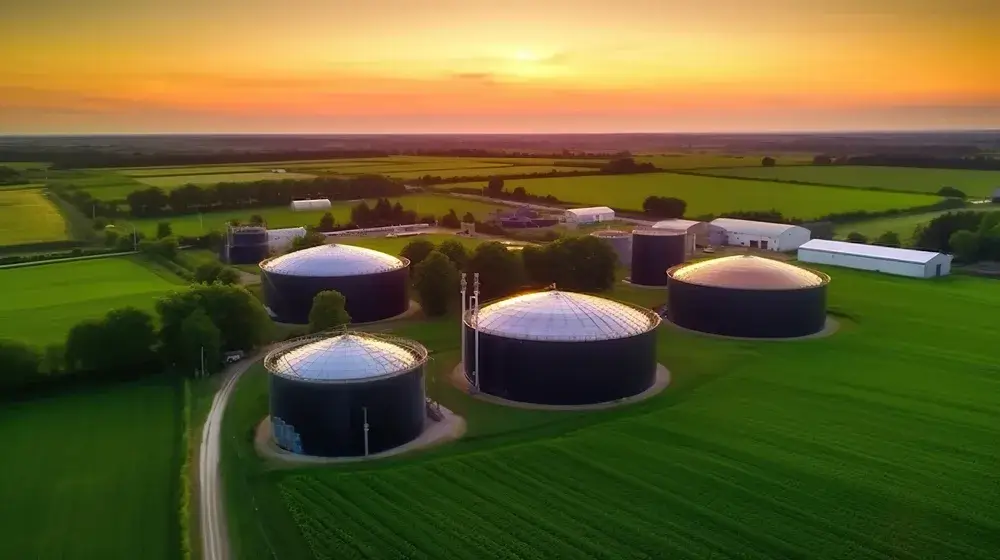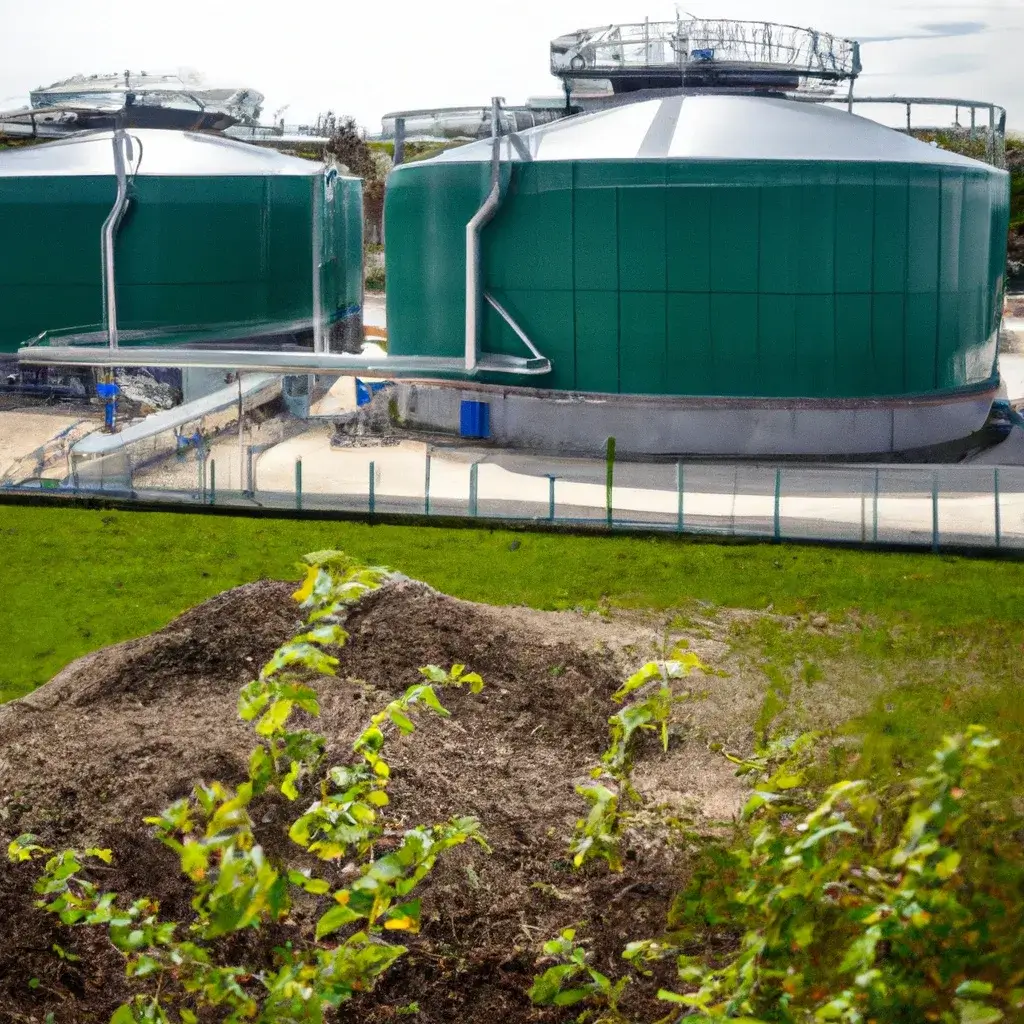From Waste to Watts – how MWM® transforms biogas into power

Transforming biogas into power represents an increasingly important strategy in harnessing renewable energy from organic waste materials. As the world is intensely seeking sustainable energy solutions, farming biogas has emerged as a convenient and eco-friendly source of power generation.
In this article, we will discover the process of converting biogas into power using MWM® gas engines, highlighting the benefits and features they bring with.
Energy production with biogas – convenient and sustainable
Harnessing biogas for energy production offers numerous benefits, making it a convenient and sustainable source of power generation. Here’s why!
- Renewable resource: Biogas is produced through the anaerobic digestion of organic materials such as agricultural waste, animal manure, sewage sludge, and food waste. Since these feedstocks are continuously generated, biogas is considered a renewable resource, offering a consistent and reliable energy supply.
- Waste management solution: Biogas production provides a sustainable solution for managing organic waste materials. Instead of allowing organic waste to decompose in landfills, where it emits methane and other harmful gases, biogas facilities capture these emissions and convert them into a valuable energy resource. This not only reduces the environmental impact of organic waste disposal but also helps alleviate issues related to odor, pollution, and soil and water contamination.
- Energy independence and security: Biogas offers the potential for decentralized energy production, allowing communities to generate their own power locally. This promotes energy independence and resilience by reducing reliance on centralized energy sources and mitigating the risk of disruptions due to external factors such as fuel shortages or price fluctuations.
Biogas Plants – A Comprehensive Guide
In this PowerUP article, you will find comprehensive information about biogas plants – from their history and components to their advantages.
What to consider in biogas systems
Systems that harness biogas for energy production vary in shape and size, and so do their individual machines – from gas engines to gensets. What they have in common, though, is the need for reliable and long-lasting systems, as downtimes do not only come with financial drawbacks, but may also pose risks to regional energy supply.
Efficiency is key in maximizing the energy potential of biogas. Optimal utilization of biogas resources requires systems that can efficiently convert biogas into usable energy, whether for electricity generation, heat production, or combined heat and power (CHP) applications. Moreover, service-friendly solutions ensure minimal downtime and streamlined maintenance, enhancing overall system reliability and longevity.
In addition to efficiency and serviceability, safety is a critical consideration in biogas systems. Proper handling of biogas, including mitigation of potential hazards such as hydrogen sulfide (H2S) and moisture, is essential to safeguard both personnel and equipment.
Furthermore, the composition of biogas can vary significantly depending on the feedstock used and the anaerobic digestion process. This variability necessitates flexible systems that can accommodate different gas compositions without compromising performance or reliability.
Therefore, when designing or operating biogas systems, it’s essential to prioritize solutions that strike a balance between efficiency, serviceability, and safety – features that MWM® gas engines and generators are known for.
From biogas to power with MWM® – the process in detail
Transforming biogas into power with gas engines by MWM® – originally founded by Carl Benz – involves a comprehensive process that maximizes energy efficiency and sustainability. Here’s a detailed overview of the steps involved:
- Biogas Collection and Pre-Treatment: The process begins with the collection of biogas from anaerobic digestion facilities, where organic waste materials undergo decomposition to produce methane-rich biogas. Before being fed into MWM® gas engines, the biogas undergoes pre-treatment to remove impurities such as hydrogen sulfide (H2S), moisture, and other contaminants that could adversely affect engine performance.
- Gas Engine Operation: The pre-treated biogas is then fed into MWM® gas engines, where it undergoes combustion to generate mechanical energy. The combustion process is optimized to ensure maximum energy extraction from the biogas while minimizing emissions and environmental impact. MWM® gas engines are offered in different output ranges, spanning between 400 kWel to 4,500 kWel. This enables them to be implemented in power plants with 100,000 kWel power output and more.
- Electricity Generation: The mechanical energy produced by the MWM® gas engines is converted into electrical energy through the operation of generators connected to the engine shaft. This electricity can be used to power various electrical loads, including homes, businesses, industrial facilities, and grid-connected power systems. MWM® in CHPs (combined heat and power plants) allows for simultaneous generation of electricity and useful heat, further enhancing overall energy efficiency.

- Heat Recovery: In CHP applications, the heat generated during the combustion process is recovered and utilized for heating purposes, such as space heating, water heating, or industrial processes. This heat recovery significantly improves the overall efficiency of the system by maximizing the utilization of biogas energy.
- Grid Connection and Power Distribution: The electricity generated by the gas engines can be distributed through the electrical grid to end-users or consumed onsite in self-consumption applications. Grid-connected systems allow for the injection of excess electricity into the grid, providing additional revenue streams through feed-in tariffs or other incentive programs.
- Monitoring and Optimization: Throughout the process, advanced monitoring and control systems continuously monitor key parameters such as engine performance, gas composition, and emissions levels. This real-time data allows operators to optimize system operation, maximize efficiency, and ensure compliance with environmental regulations.
Advantages of MWM® gas engines and generators
MWM® gas engines and generators offer various advantages that make them a suitable choice for biogas utilization and power generation applications. Some key benefits include:
- Efficiency: MWM® gas engines are designed for high efficiency, maximizing the conversion of biogas into usable energy. Their advanced combustion technology ensures optimal fuel utilization, resulting in lower operating costs and reduced environmental impact when producing power and heat.
- Reliability: MWM® gas engines are renowned for their reliability and durability, delivering consistent performance even under demanding operating conditions. With robust construction and proven engineering, MWM® engines provide dependable power generation solutions with minimal downtime and maintenance requirements.
- Flexibility: MWM® gas engines are very versatile and can utilize a wide range of gaseous fuels, including biogas, natural gas, landfill gas, and sewage gas. This flexibility allows for the efficient utilization of diverse fuel sources, optimizing energy production and resource utilization.
- Service and Support: MWM® provides comprehensive service and support solutions to ensure the reliable operation of gas engine installations. Moreover, with PowerUP’s dedicated services for gas engine overhauls, maintenance, and upgrades, their efficiency and longevity can be further enhanced.
Increasing MWM® TCG 2016, TCG2020, TCG3016 and TCG3020 efficiency – with PowerUP
PowerUP is dedicated to optimizing the efficiency of gas engines like MWM® TCG 2016, TCG 2020, TCG 3016, and TCG 3020 through a range of specialized services. Our team of experts provides gas engine repair and overhaul solutions, ensuring that engines operate at peak performance levels.
Our bespoke parts program offers not only high-quality spare parts suitable for MWM® gas engines, but also custom-engineered parts and systems within a special product line suitable for MWM®. This includes blowby filters, cylinder heads, spark plugs and more.
With specialized teams and remote service capabilities, we provide prompt assistance and troubleshooting to maximize uptime. And through condition-based overhaul strategies, we provide maximum re-use of qualified parts.
By harnessing the expertise of PowerUP and leveraging the latest advancements in gas engine technology, you can unlock the full potential of your gas engine, achieving unprecedented levels of efficiency and reliability in energy production.

